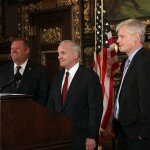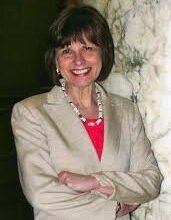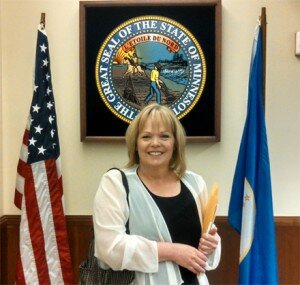TAG | Governor Mark Dayton
22
June, 2014 Newsletter
No comments · Posted by SD48 DFL Communications Team in Candidates, e-Newsletter, Gov. Mark Dayton, Issues, Joan Howe-Pullis, Laurie McKendry, News, Rep. Yvonne Selcer
What Our Candidates are DoingRep. Yvonne Selcer, HD48A
Rep. Selcer is still busy reaching out to her constituents with regular door knocks Saturday mornings from 9:30 am to 2:00 pm and Thursday afternoons from 5:00 to 8:30 pm. There are phone banks Wednesday from 5:30 to 8:30 pm and Sunday evenings from 5:00 to 8:00 pm. Maars can schedule you in for either activity. Joan Howe-Pullis, HD48B Candidate
She’s also working hard to raise the funds she needs to communicate with the voting public, and has had strong success. Joan also been out 6 days a week. She’s reached over 2,000 doors already and has an aggressive goal of reaching 10,000 by Election Day. Her message of a government that works and cooperative problem solving is resonating with the voters in her district. And, her daily message of empowering conversations and daily debriefs with volunteers is inspiring to watch. The SD48 candidate, Laurie McKendry is door knocking with Joan weekly. The campaign held it’s first phone bank June 7 with 11 volunteers making calls. They expect to have at least that many on upcoming phone banks. Their website is up and running, and while they’ll continue to tweak content and design, contributions can be made on her website. They also have their Facebook page and Twitter feed up and running, so please like Joan’s page and follow her on Twitter. There is much to do and little time to do it. The campaign could use your help. If you’re able to help, please contact them at [email protected]. They’ll be in touch to find out how you’d like to help be it campaign leadership, helping with communications, voter contact, putting up lawn signs or helping with a letter to the editor. “This is a winnable race, and winning will be the reward of a lifetime for all who contribute to the work of this campaign,” said John Pullis, Joan’s Campaign Manager. Laurie McKendry, SD48
Laurie McKendry is out door knocking with both Rep. Yvonne Selcer (HD48A) and Joan Howe-Pullis (HD48B). Laurie is also continuing to work on her Masters Degree. Did You Lose Any Plants in the Deluge or Haven’t Got Your Summer Plants In?
A portion of the proceeds go to support our district and that means we have a better ability to support our candidates. So, visit our sale page now and make your purchase. We’ll be at Round Lake Park July 4thIf you will be, stop by and say helloAgain this year, SD48 DFL will have a booth at Eden Prairie’s Round Lake Park (southwest corner of Eden Prairie Road and Valley View Road) for Eden Prairie’s Home Town Celebration. We’ll have fun for the kids while mom and dad talk politics. Our candidates will be with usWe’re pleased to announce that we will be joined by:
Early voting for the primary begins Friday
Want to vote in the August 12 primary but have plans to be away from home that day? Thanks to no excuse absentee balloting, voting in Minnesota is now easy as 1, 2, 3 – and early voting for the August 12 primary opens Friday.
You can request, receive and cast an absentee ballot in one visit to your county election office. Some cities and towns also provide ballots at their offices. Beginning Friday, you can cast your vote for the August 12 primary:
If you are not registered to vote, you will need to complete a voter registration form and show proof of residence at the election office. Remember, voting opens this month, June 27, for the August 12 primary election. There’s no excuse not to vote in 2014! Cast your vote to support our DFL-endorsed candidates. Minnesota gains 154,300 new jobsThe Minnesota Department of Employment and Economic Development (DEED) has released new jobs numbers for the month of May. Highlights include:
For more information about the report, click here. The news follows the recent announcements of several new business expansions across Minnesota, including:
Flood response effortsRecently, Gov. Dayton’s focus has been on the many Minnesotans whose homes, businesses, and farms have been impacted by the ongoing flooding and severe weather across the state. Last week, the Governor:
Minnesota’s Emergency Operations Center was activated several days ago to coordinate the state’s response to ongoing severe weather events, and to provide assistance to local first responders. Check the Department of Public Safety’s news center for more updates on ongoing severe weather, and the state’s continuing response efforts. |
Minnesota Chambers and Republican at Odds Over SWLRTThis may be a first, because historically the Chamber and the Republican Party have always been in lock-step. The best way to begin to characterize what is a philosophical/political versus reality problem is to clarify that the Republicans do not support rail (public transit), but they do support the SWT (Southwest Transit Bus) and the airlines. These are all public transit. Any transportation that provides scheduled service and receives federal and state funding is considered public transportation Minnesota Finance and Commerce Magazine had this to say, “Despite Republican legislative leaders’ opposition to dedicating $25 million in bonding money this year to the proposed Southwest light rail transit line, leaders from three local chambers of commerce lined up this week at the Capitol to express their support for the LRT….” MnDOT reports that 50 percent of the state’s highway pavements and 35 percent of its bridges are more than 50 years old, and says the highway system faces a $12 billion funding gap over the next 20 years. You can’t miss the construction projects all over the Twin Cities, road resurfacing, highway round-abouts and overheads, new highway exits and entrances, bridge construction and renovation that make getting there safer. Rail is cheaper than asphalt roads. And though the price tag for the SWLRT project appears high, where’s the context? Who’s done their homework and compared it to the cost of installing the same capacity for roads? When you factor in the cost of a vehicle, gasoline, insurance, the environmental impact, road maintenance, the fact is that rail creates more capacity than roads would ever be able to handle, unless existing homes and businesses are taken through eminent domain, or we figure out how to levitate ton weight vehicles on highways-in-the-sky? Not in this lifetime. Nobody rides or drives for free, but rail offers an alternative that would be less expensive for many Minnesotans. Republicans don’t want transportation dollars diverted to a multi-modal alternative like rail.Here’s a sampling of Republicans who oppose LRT in Minnesota.Robert “Again” Carney, a Republican running for Hennepin County Commissioner this year, is a roadie who believes the only solution to our transportation woes is lots more small buses. Republican gubernatorial candidate Marty Seifert is “calling on Minneapolis Mayor Betsy Hodges, city officials and the Metropolitan Council to end closed-door mediation sessions and vote against the proposed Southwest Light Rail.” Back in 2012, Representative Mike Beard (a Republican) sought to strip the Metropolitan Council of its powers over transportation. According to Minnpost, the plan was to create multiple boards and commissions to do the work now performed by one agency, the Met Council. The politicization would likely add more government interference rather than a decision making non-partisan agency like the Metropolitan Council, that has met directly with the community groups and elected officials. House District 48B Representative Jenifer Loon’s (R) strong opposition to the SWLRT project came through in a letter she wrote to the Eden Prairie City Council asking them not to support the project without a final EIS. Loon’s objections included traffic disruption. (Note that Loon did not mention a traffic disruption problem during construction of the 494/169 highway project.) She also offered an amendment in the state legislature that requires legislative oversight of the Metropolitan Council’s authority to use state funds for expenditures on LRT projects specifically. Loon contends that the LRT project has not had the oversight of elected officials, i.e. the legislature, nor the transparency the Legislature would provide. In fact the Metropolitan Council held extensive meetings with the public and elected local officials of city’s directly impacted by the project, for decades. None of these meetings had a political agenda. We keep hearing from Republicans that local governing bodies are in the best position to make decisions about their community. That’s exactly what has taken place, but now Republicans at the legislature have decided, because they want control over a project they don’t like, that they can interfere with local government decision making. Businesses, transportation groups, and local chambers support LRTAccording to Margaret Donahoe of the Minnesota Transportation Alliance who traveled to DC in June, Congress should “stop kicking the can down the road” with short term fixes, but approve the new, multi-year transportation law.” Matt Kramer, president and CEO, St. Paul Area Chamber of Commerce said, “Roads and bridges are as important as bus and rail, and the Met Council can play an important role in advocating for a balanced mix for the east metro and for the Twin Cities as a whole. Candidates should understand the value of a ‘hub’ when advocating for multi-modal transportation solutions.” Charlie Weaver, Executive Director, Minnesota Business Partnership said, “Appoint members who are able to focus on the priorities of the region as a whole rather than the desires of individual communities. Focus on few things and do them well: a well-run park system, functioning sewers and making sure the trains and buses run on time. Avoid partisan politics; work closely with your local partners; and don’t try to do everything for everyone. The Met Council is unique in the nation. It is a system that has worked well precisely because past chairmen and council members have taken a regional approach to metropolitan development and done so on a non-partisan basis.” In 2012, Minnesota’s three largest Chambers of Commerce, the Minneapolis Regional, the St. Paul Area, and TwinWest, who support the business community jointly published a press release supporting Southwest LRT in the bonding bill. “As the economy edges toward improvement, major Twin City’s employers will be looking to expand — either in our area or elsewhere, in the coming years,” the statement says, adding that 40 percent of downtown Minneapolis employees rely on transit to get to work. “We want to keep businesses growing here and that means making critical transit investments now.” Rail helps create capacity that roads can’t supportTwinCities West Chamber and its affiliates support SWLRT because they believe it provides access to businesses and employees that roads can’t. Access supports job growth; mitigates congestion; creates regional and state competitiveness, and provides for economic development. The TwinCities West Chamber is aligned with the Southwest Transit Alliance and the business community in support of SWLRT. The SWLRT is a regional solution to a getting-there problem. It’s also a NIMBY problem because the rail line goes through different communities with differences of opinion about where, how much, and why we need rail in the first place, since we already have roads and bus service. Creating more highway lanes to accommodate growth would be unfeasible from an economic and environmental stand-point. All options were considered in determining the feasibility of every mode of ground transportation and the result was that the most cost effective solution, in terms of future growth, must include multi-modal transportation that includes rail. The research for the SWLRT project was submitted to the federal government and like other forms of getting-there e.g. road and air transport, all each receive federal, state, and county funding. However, truth-be-told dedicated taxes, toll roads, and the gas tax have paid for only a small portion of our nation’s road system. In the past century, road and air transportation have received much more government funding than rail. MNGOP’s opposition to the SWLRT as stated in their most recent party platform, aligns with a letter written by Jenifer Loon to the city of Eden Prairie and a legislative amendment she authored that would alter the Metropolitan Council’s authority and require all LRT projects be approved by the Legislature. Loon takes it a step further, as does MNGOP in their party platform, to actually eliminate Minnesota’s Metropolitan Council, which has been a regional planning policy-making body, planning agency, and provider of essential services since 1967, including working with other agencies in the Twin Cities Metropolitan Region on transportation, wastewater, regional housing, redevelopment authority, plans and funds for parks and trails. The Met Council is granted regional authority powers through state statutes by the Minnesota Legislature, which includes taxing authority. The latest local actions taken on SWLRT ConsentThe Eden Prairie Council took no action on the SWLRT project at their last meeting June 17th. The council had several options to move on a vote of municipal consent, which meant the city consents to the current physical design only, and nothing else. The city’s lawyer Rick Rosow told council members that they had the option of approving with a list of items not in the design plan. There was also the option of disapproving with proposed amendments, approval with conditions, or the option of voting against the project. Mayor Nancy Tyra-Lukens proposed the vote on the SWLRT project be delayed to July 15 after the MOU, Memorandum of Understanding, between the SWT (Southwest Transit) and the SWLRT (Southwest Light Rail) is finalized. Issues of importance related to the MOU that were cited at the council meeting by the Mayor were as follows: •Protecting existing bus service At the City Council meeting on June 17, Council Member Brad Aho brought up the lack of an Environmental Impact Statement (EIS), which he believes should delay the city’s consent of the project. Both Aho and Loon are against the project and don’t want the city to give consent. The city’s lawyer explained during the meeting that giving “Municipal Consent, per state law, relates only to local governments approving the physical design components of the LRT project, not the environmental impacts. The city can come back and question the DEIS or draft EIS, before a final SDEIS, supplemental EIS is finalized and available for public comment. This is how it works with all infrastructure projects, such as the Flying Cloud Airport expansion, and the 494/169 project. The simple answer to why MNGOP and Representative Loon want to eliminate the Metropolitan Council is because the Metropolitan Council has the authority from the Minnesota Legislature to tax. At some point-in-time, a gas tax may have to be put on the table to fund all transportation projects and that’s why MNGOP is making the SWLRT an election issue in November. Reference Linkshttp://finance-commerce.com/ 2012/02/ chambers-go-against-grain-to-push-for-southwest-lrt/ http://seifertforgovernor.com /news/ seifert-calls-minneapolis-and-met-council-stop-sw-light-rail http://www.minnpost.com/ community-voices/ 2014/04 /hennepin-commissioner -candidate-demand-southwest-lrt-alternatives http://www.minnpost.com/ politics-policy 2014/06/ federal-highway-trust-fund-running-empty-minnesota-transportation-advocates- http://www.minnpost.com/ cityscape/ 2012/03/ house-gop-floats-plan-restructure-regional-planning http://www.twincities.com/ localnews/ci_17061334 http://alankandel.scienceblog.com/ 2014/01/11/ rails-vs-roads-for-value-utilization-emissions-savings-difference-like-night-and-day/ http://www.minnpost.com/ cityscape/ 2014/06/what-if-we-made-transportation-systems-regulated-public-utilities http://blogs.citypages.com/ blotter/ 2012/01/ southwest_lrt_ business_ community_ support. php http://www.economist.com/blogs/economist-explains/2013/08/economist-explains-18 http://pedestrianobservations.wordpress.com/ 2011/09/19/passenger-miles-are-overrated/ |
2014 State of the State address · August 12 primary · flood response · Gov. Dayton · Governor Mark Dayton · HD48A · HD48B · House District 48A · House District 48B · Joan Howe-Pulls · Mark Dayton · Minnesota economic improvement · no excuse absentee voting · primary early voting · Rep. Selcer · unsession · Yvonne Selcer
16
2014 Legislative Session: Progress in building a Better Minnesota
No comments · Posted by SD48 DFL Communications Team in Candidates, Gov. Mark Dayton
by Ken Martin, Chairman, Minnesota DFL
 After years of budget deficits and Republicans kicking the financial can down the road, Gov. Mark Dayton and the DFL kicked off the 2014 Legislative Session with a $1.2 billion budget surplus. This is a far cry from the $6 billion budget surplus Gov. Dayton faced in his first session.
After years of budget deficits and Republicans kicking the financial can down the road, Gov. Mark Dayton and the DFL kicked off the 2014 Legislative Session with a $1.2 billion budget surplus. This is a far cry from the $6 billion budget surplus Gov. Dayton faced in his first session.
DFL leaders committed to using this money to continue their progress to build a Better Minnesota, and that’s what they did.
Gov. Dayton and the DFL cut income taxes for more than 1 million lower- and middle-class Minnesotans, repealed business-to-business taxes; provide a raise for those caring for seniors and disabled citizens; and provided financial assistance for residents heating their homes with propane during the long-lasting, brutally cold winter. And for the first time in more than a decade, homeowners, farmers and businesses will see property tax relief.
The session will also be remembered for actions that will improve the lives of working Minnesotans and strengthen our economy.
Knowing it’s wrong that people are working full time and living in poverty, Gov. Dayton and DFL legislators raised the state’s minimum wage from $6.15 an hour, one of the lowest in the nation, to $9.50 an hour by 2016. More than 320,000 low-wage workers will now have more money to support their families, improve their education or purchase basic needs. The DFL Party was proud to be a member of the Raise the Wage Coalition, comprised of faith, labor and non-profit groups, who came together to advocate for the new law.
The Women’s Economic Security Act (WESA) signed into law by Gov. Dayton provides stronger workplace protections for women. With so many women working in Minnesota, breaking down barriers to women’s economic impact is a true win for families.
Every region of the state will benefit from the bonding bill passed by the Legislature. Not only does the bill invest in classrooms, civic centers and other projects that will help local economies, but it will put thousands of Minnesotans to work.
Also of note was the “unsession.” Gov. Dayton signed more than 1,100 proposals into law that will streamline government and improve government services by eliminating unnecessary and outdated statutes and simplifying the language of our state laws.
This progress builds on the successes of the 2013 Legislative Session when Gov. Dayton and DFL leaders made an historic investment in education, including free all-day kindergarten; created a fairer tax system for the middle class; and provided property tax relief.
The past two years the DFL has led the state are in stark contrast to Republicans shutting down state government, borrowing money from schools and protecting the state’s top wage earners at the expense of the middle class.
Gov. Dayton and the DFL’s accomplishments over the past two years are a great way to launch the 2014 campaign. We look forward to talking to voters about how the DFL is the Party of opportunity for all. Under our leadership, there are more Minnesotans working than ever before, lower taxes for the middle class and investments that will pay long-term dividends and build a Better Minnesota.
2014 legislative session · Gov. Dayton · Governor Dayton · Governor Mark Dayton · Rep. Paul Thissen · Sen. Tom Bakk · Senator Majority Leader Bakk · Speaker of the House Paul Thissen
8
2013 Minnesota DFL Legislative Accomplishments
No comments · Posted by SD48 DFL Communications Team in Issues, News
 DFL48
DFL48








